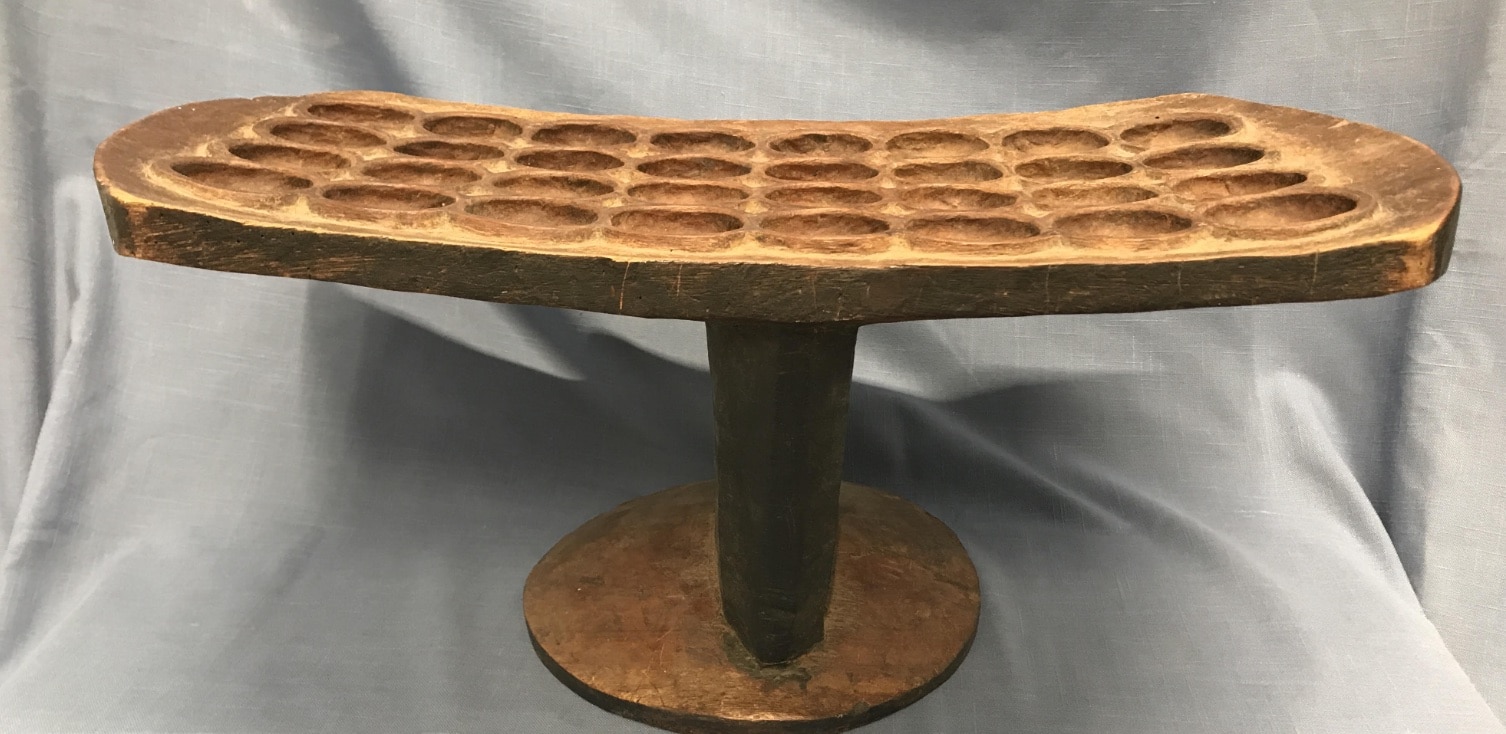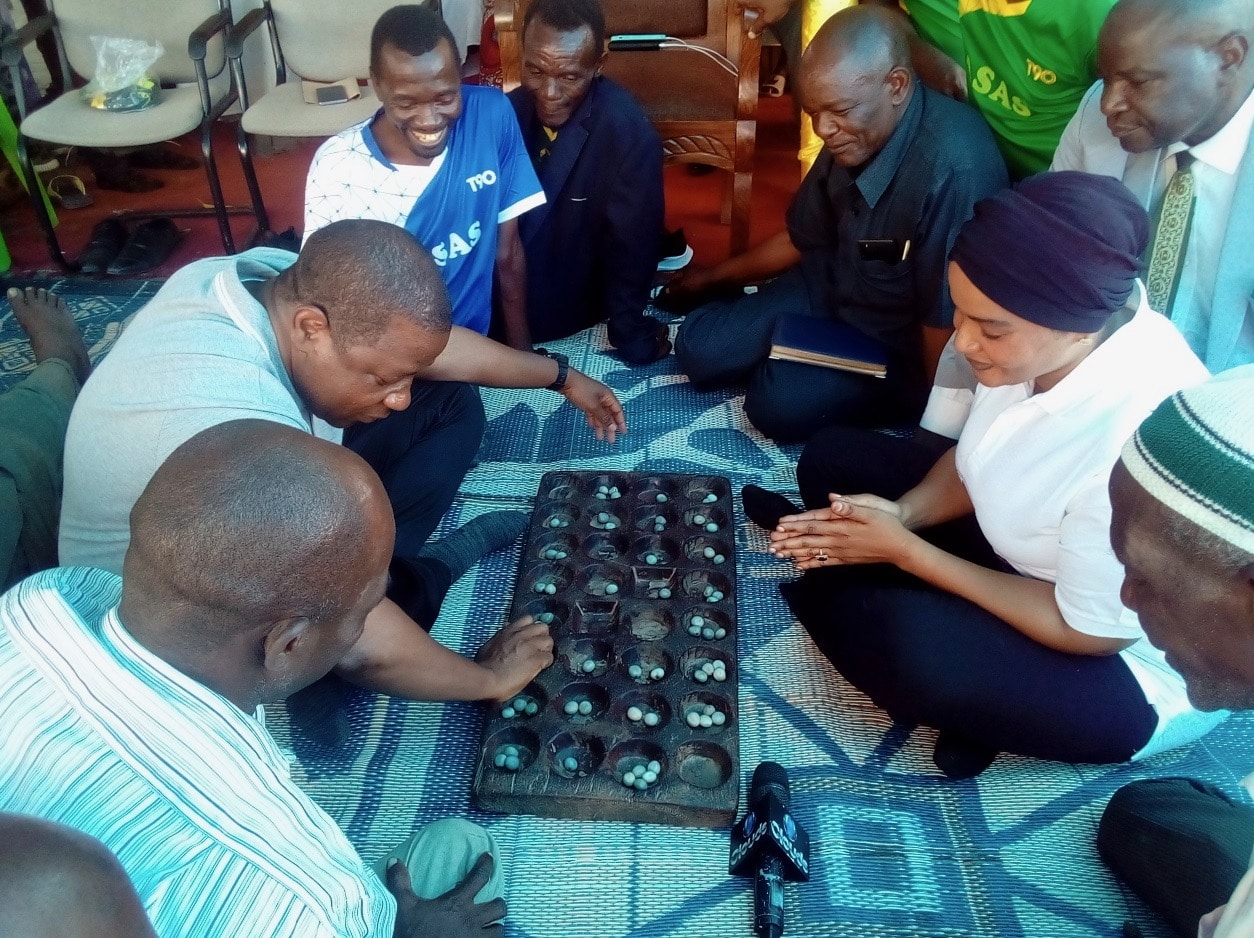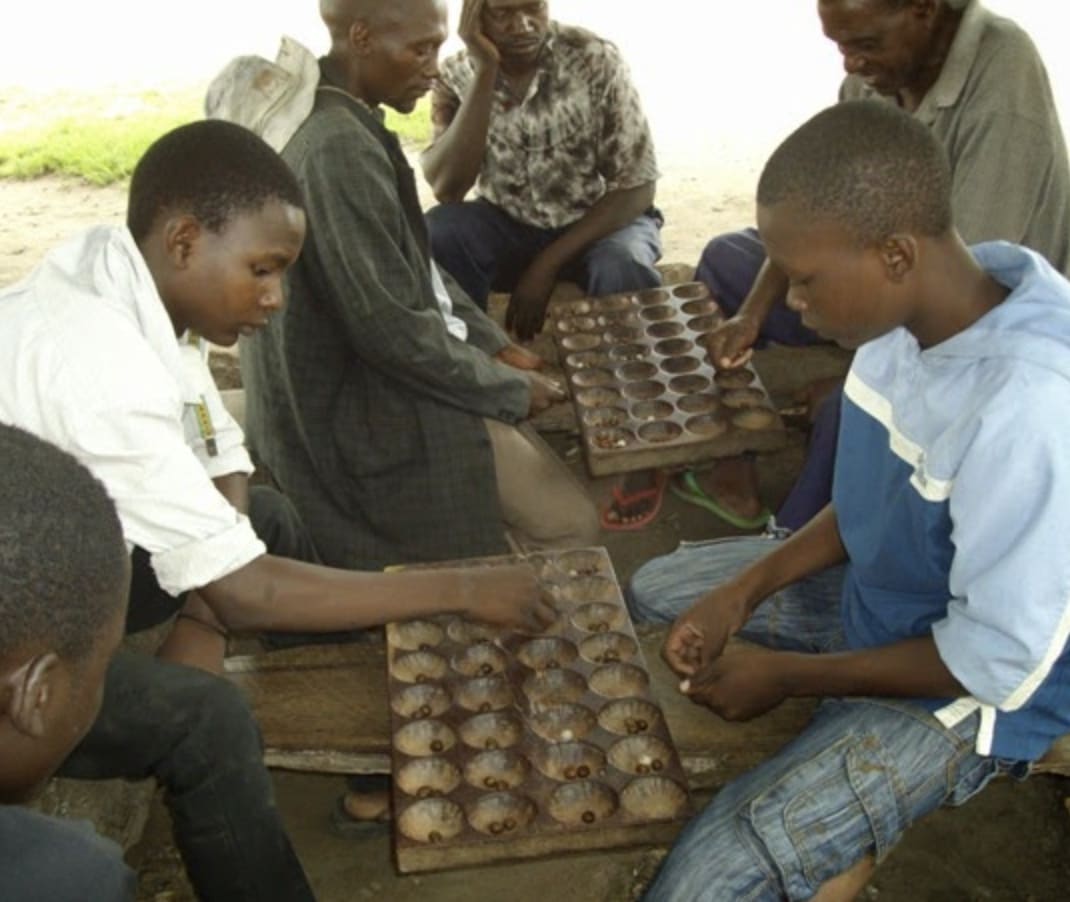During my first observation of a Bao game in 1964 in Kahama, Tanzania, my KiSwahili was not fluent enough to ask questions of the other observers. No one said anything to the intense, concentrating players. Bystanders grunted their approval at good moves or sighed when they saw a player make a questionable one. Quickly, I understood that we were not to interrupt.
Later, I found some students setting up to play Bao on a bare patch of land. They made the cup depressions by digging their heels into the dirt and collected bottle caps to use for beads or seeds. The boys were happy to explain and show me how the game was played. Over time, other versions of count-and-capture games heightened my interest in Bao. During my second year as a volunteer, I heard of a carver who would make a Bao board for me out of one piece of wood. I took this board home when I finished my service in the Peace Corps.
I was introduced to Bao during our Peace Corps training at Syracuse University. We were also blessed with a very good cultural grounding that focused on what we’d encounter and observe, and how we should and should not respond, and why. Our group was assigned to work as primary school teachers. I learned that soccer was the main sport for boys, and for girls, netball was their favorite. Sports and games were a part of the curriculum and considered important for developing healthy young bodies and minds.
It was the game of Bao, however, that suggested to me how I would survive in Tanzania. Like other Peace Corps volunteers, I was a recent BA/BS graduate. Our training was limited mostly to explaining the mechanics of teaching and learning. I was not prepared for the fact that, in my 7th grade science classes, there would be no running water or materials; no copper wire for teaching electricity, and no anatomical models for teaching biology. Thus, to teach, I was forced to learn how to improvise.
I went to a butcher and asked for the lungs, liver and heart of a slaughtered cow. I was told the heart and liver were saved for the old people who had no teeth, but the lungs and thorax I could use to illustrate how bodies deliver oxygen to their organs. I asked students to make crude musical instruments so we could see how sounds and air currents can achieve different effects. I asked for charcoal from the school kitchen so students would be able to make sketches in Art classes.
Over time, I learned to deal with the economics of scarcity in this new African nation. My science lessons were first inscribed on a blackboard, then copied by students into their blue notebooks. If I gave a quiz, the questions and answers were put in their bluebooks. Having 45 students in each class, I learned to rotate homework assignments, so that I would not have more than two classes worth of quizzes or homework to correct and return the following day.
I learned that surviving in Tanzania was competitive and intellectually challenging for me and the students—just like Bao. For those unfamiliar with the game, it is a game that originated over 2,000 years ago in Egypt. The game spread to Africa, Eastern Europe, India and the South Pacific, assuming many different names as it traveled.
At its heart, Bao teaches players about scarcity and saving—protecting your own seeds while capturing the seeds held by your opponent. Each player begins with 48 seeds, stones (or sometimes, bottle caps) and deposits them by turns into four rows of “pits” – two rows per player on each side of the board. Playing by various sets of rules, Bao games can take much more than an hour before one player is the victor.
Once back in the United States, I kept the Bao game in my living rooms and found a booklet or two explaining the rules. I played a few games with willing victims.
Today, Americans (and perhaps Tanzanians) use cellphones in a similar way to pass the time. However, for me Bao was more than a pastime; it was a key to adapting and surviving in Tanzania’s culture.








